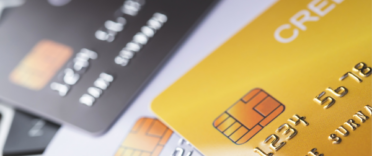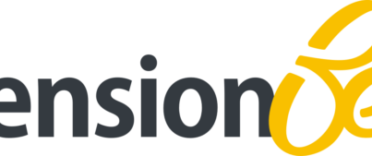 Debt can be expensive, stressful and damaging for your financial future. Missing one or two payments has the potential to spiral into a serious problem unless you can act quickly. One of the options that may be available is to consolidate your debts into one monthly repayment. In this article, we take a look at the different options for consolidating debt and the pros and cons of doing so, plus the steps you can take to reduce your debt and where you can get help with debt consolidation.
Debt can be expensive, stressful and damaging for your financial future. Missing one or two payments has the potential to spiral into a serious problem unless you can act quickly. One of the options that may be available is to consolidate your debts into one monthly repayment. In this article, we take a look at the different options for consolidating debt and the pros and cons of doing so, plus the steps you can take to reduce your debt and where you can get help with debt consolidation.
What does debt consolidation mean?
If you have multiple types of debt – such as credit cards, overdrafts or loans – combining them into one monthly payment can make managing your finances much easier. It can also save you money. Combining your debt in this way is known as debt consolidation and in principle involves paying off multiple debts through one new form of borrowing. If you are not sure how to consolidate debt, there are a number of different ways to go about it, as we explain below. You could also reach out for free debt help, which we cover in our article 'Where to get free debt advice'.
6 ways to consolidate debt
We’ve outlined six different methods for consolidating debt. Pick the one that best fits your financial situation.
1.) Consolidating debt by credit card balance-transfer
A balance-transfer credit card can be a convenient and relatively simple option for credit card consolidation. A 0% balance-transfer credit card allows you to move existing card balances across to that card and avoid paying interest for a set number of months. If you are paying high rates of interest on your existing balances, a 0% balance-transfer card can save you a significant sum of money. You can read more in our article 'What is a balance transfer credit card and how does it work?'.
Keep in mind that you will usually need to pay a transfer fee of a percentage of the amount transferred, which will be added to your new balance. It is also worth noting that the best deals are reserved for those with good credit scores and if you don’t clear your balance before the 0% period ends, you will start paying interest at a much higher rate.
We have highlighted the best deals on our 'Best 0% balance-transfer credit card deals' page.
Another option is to use a balance-transfer card that offers a low rate of interest for the life of the debt, so there’s no deadline by which you need to have cleared it. Although you will still pay interest, it could be more competitive than the rate you are paying on your existing card balances. Some low APR credit cards have the added benefit of no balance-transfer fee.
Be aware, however, the limit on a credit card may not be high enough for your needs and it may take you a long time to pay off your debt, particularly if you only make the minimum repayment each month.
2.) Consolidating debt using a personal loan
Personal loans typically let you borrow more than with a credit card. Interest rates can be competitive too, particularly on sums of £7,500 or more. You could therefore consider applying for a personal loan and using your loan to pay off your existing debts.
The downside, however, is that the most competitive rates will typically only be offered to those with excellent credit scores. Monthly payments are fixed which makes it easier to budget, but this also means you must be sure you can afford to make your payments each month. Failing to pay on time or missing payments completely can negatively affect your credit rating.
For more information, visit our article 'Is it better to get a credit card or a personal loan?'.
3.) Consolidating debt using a debt consolidation loan
A debt consolidation loan is specifically designed to help bring all of your debts together in one place. You then make fixed monthly payments to your loan provider. This can work out to be cheaper and much more manageable than multiple, scattered debts.
There are two types of debt consolidation loan – secured and unsecured. A secured debt consolidation loan means the amount borrowed is secured against an asset, often your home. If you can’t keep up with your repayments, you risk losing your home. An unsecured debt consolidation loan, on the other hand, is not secured against an asset and is seen as the less risky option. We have more information in our article 'Secured vs unsecured loans: Which is best for me?'.
While debt consolidation loans can be useful, the downside is that the term of your loan could span several years, resulting in you paying a lot of interest overall. You should also check the small print carefully as some companies charge high fees for arranging the loan, or you may be charged for paying back your loan early.
If you are not sure whether to consider a debt consolidation loan, you should ask yourself if you will still be saving money once any fees have been factored in and if you will pay less interest overall. You should also make sure you can afford the monthly repayments. If you can’t, or taking out a debt consolidation loan is going to work out more expensive in the long run, this type of loan is unlikely to be right for you.
4.) Consolidating debt using a home equity loan
It is also possible to remortgage your home to consolidate debts. When you remortgage, you can release the equity in your home and if the value of your property has increased significantly, you may have a decent sum to put towards your other debts.
This can be a particularly tempting option if mortgage rates are low. However, it is important to keep in mind that you will be increasing the size of your mortgage loan and your monthly repayments may rise as a result. If you can’t keep up with these repayments, your lender could ultimately repossess your property.
You should also factor in the cost of any booking, arrangement, valuation and legal fees when you remortgage. Keep in mind too that you will be borrowing over a much longer period of time than you would with a credit card or loan, so it can work out to be more expensive.
Finally, it is worth noting that remortgaging with debt won’t necessarily be easy. Lenders will check your credit rating to see how well you have managed your debt repayments in the past, but they will also examine your bank statements and spending habits. If they believe you are struggling financially, this can affect the amount you can borrow against your property or the interest rate you pay. You should therefore think about this option very carefully.
You can find out more about home equity loans in our article 'Remortgaging to consolidate debt'.
5.) Borrow from retirement
If you have been saving into a pension and are aged 55 or over, rules introduced in April 2015 allow you to withdraw money from your pension pot whenever you need it. This means that you could potentially make a withdrawal and use the funds to pay off your debts. The first 25% of each withdrawal you make will be tax-free, but you will pay tax on the remaining 75%.
However, before you choose to go down this route, you should keep in mind that as you withdraw money from your pension, your pot size will reduce. When you come to retire, you could find your pension isn’t large enough to support you. It may therefore be a good idea to seek advice if you are considering this option. Read our article '10 tips on how to find a good financial adviser' to learn more about getting the right help.
6.) Borrow from friends or family
An alternative way to help pay off your debts is to ask family or friends for financial help. The main advantage of this is it can be a much cheaper way of paying down your debts. However, it is important to establish a few ground rules first. Make sure you draw up a budget in advance by taking a look at all your outgoings and earnings and work out how much you can realistically afford to pay your friend or family member back each month. It can be worth putting this in writing.
It is also important to be honest with the person lending you the money. If you can’t make your payment one month, you should talk to your friend or family member as soon as possible and come up with a new repayment plan. If you are not honest, you could risk damaging your relationship.
Where to get help if you are experiencing debt problems
If you are concerned about the amount of debt you have, it is best to seek advice as soon as possible. Don’t bury your head in the sand as your problems will only escalate – there is always help available. A number of charitable organisations and websites offer fee-free advice and can talk through the various options available to you to help you tackle your debt and get on top of your finances. They can also advise on debt consolidation plans.
Some of the places you can turn to include:
- StepChange
- Citizens Advice
- Moneyhelper (Formerly the Money Advice Service)
- National Debtline
- Payplan
- Turn2us
- The Money Charity
If a link has an * beside it this means that it is an affiliated link. If you go via the link Money to the Masses may receive a small fee which helps keep Money to the Masses free to use. But as you can clearly see this has in no way influenced this independent and balanced review of the product.






